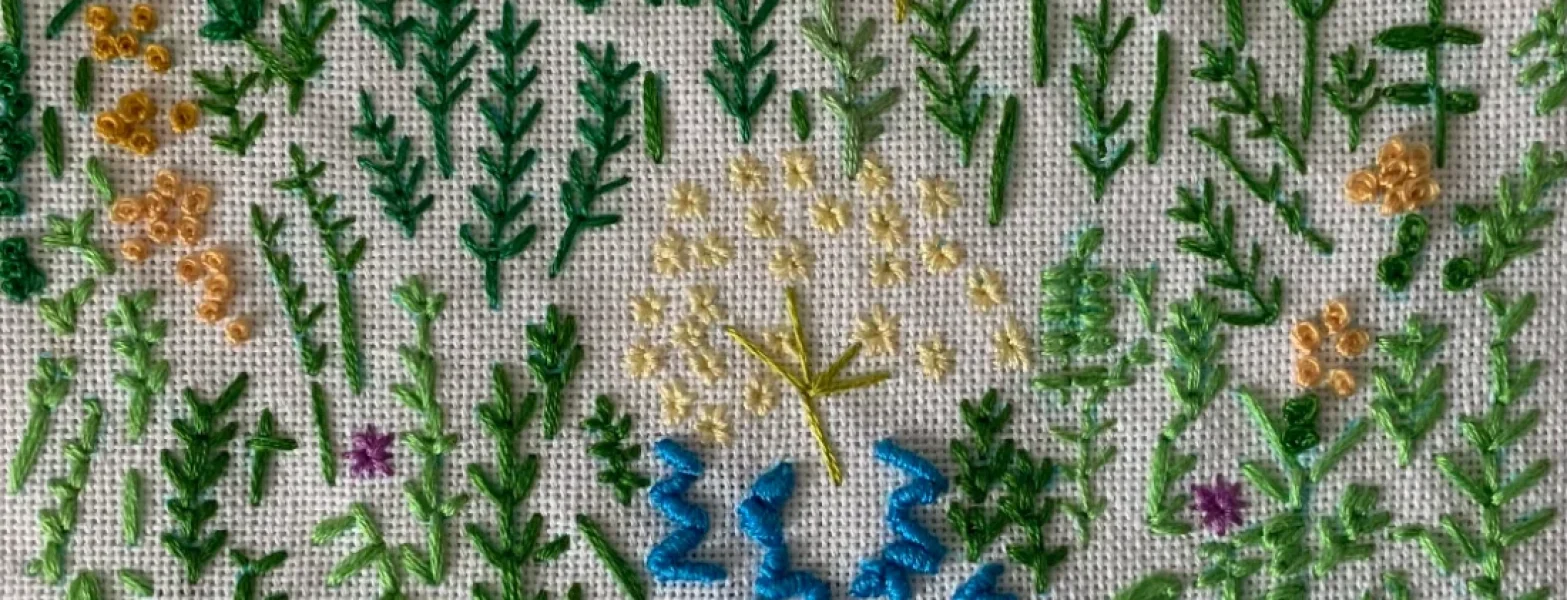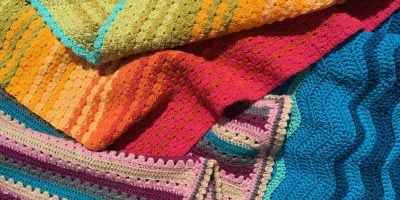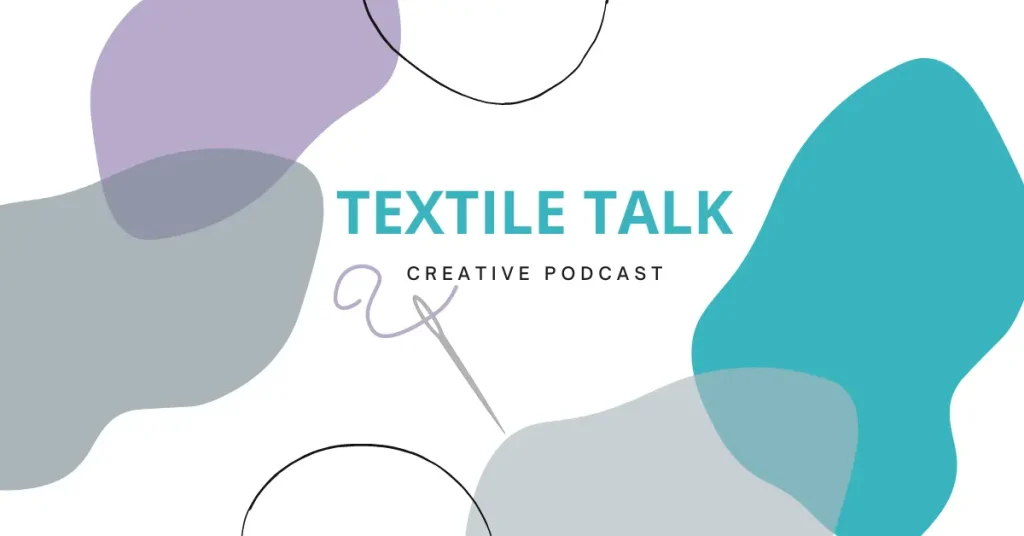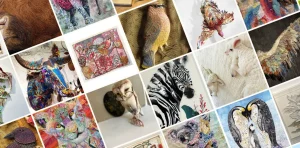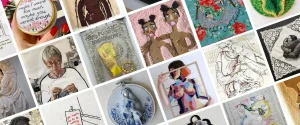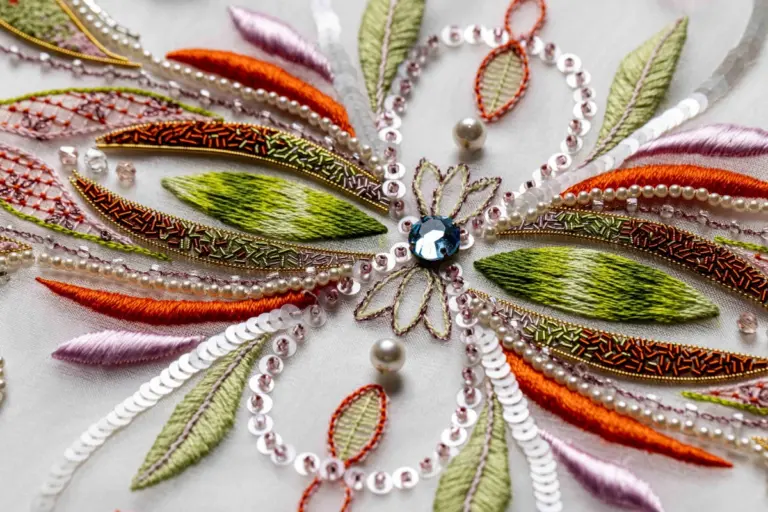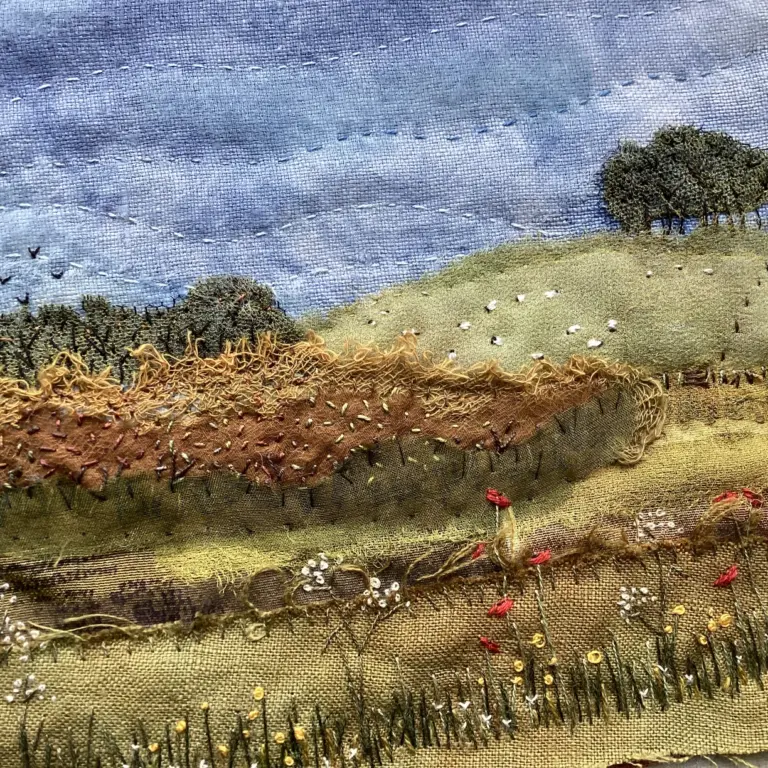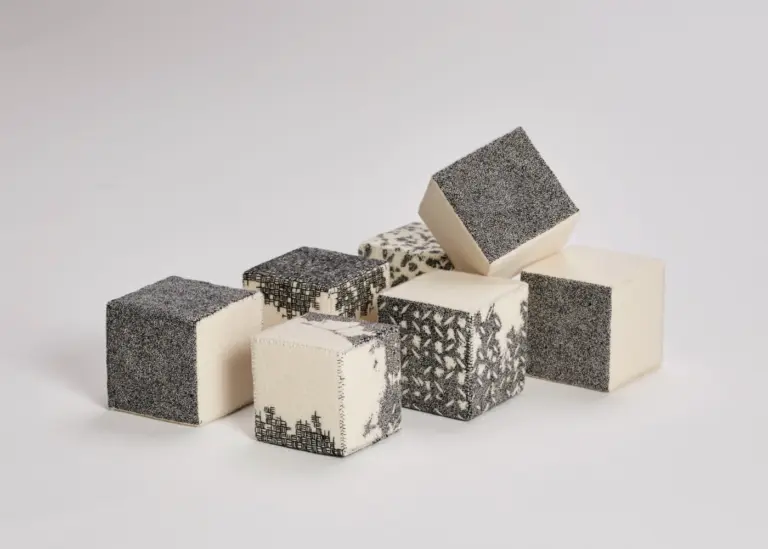Kirsten Shearer’s interest in embroidery was sparked while studying for a National Certificate in Art & Design. She enrolled onto our course to develop a greater understanding of embroidery and developing creative confidence.
Having completed our beginner’s Hand Embroidery course (Skill Stage 2 ) Kirsten shares her experience of studying with us, developing a diverse repository of techniques and playing with artistic expression.
With the support of her tutor, she has been able to push the boundaries of traditional embroidery and grow from hobbyist into a confident artist. She is even being featured in our Student Excellence Awards in recognition for her achievements. This is her #MyStitchJourney.
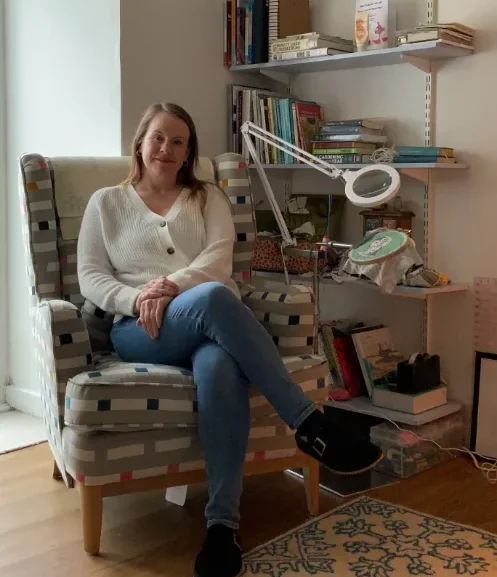
“The course has allowed me to be just as expressive and personal through this medium as any other. I learned new types and techniques of embroidery which I’d never even heard of, which will definitely inform future pieces of my work. Mostly though it has helped me develop a regular practice of work at home and how to be disciplined with my time.”
Kirsten Shearer
In 2015 I achieved a National Certificate in Art & Design. One of the units on the course was Creative Textile Development. Working with textiles particularly appealed to me as I already enjoyed knitting and designing my own patterns. One of our tutors on the course was a professional embroiderer who had gained qualifications through City & Guilds, so after being taught a basic knowledge in hand embroidery I was keen to explore and develop my skills further.
In order to develop these skills, I enrolled on an online course with textile artist Sue Stone called ‘Exploring Texture & Pattern’. Whilst this course helped me to expand my stitch vocabulary, and taught me about exploring the potential of stitching, I felt I needed to take things further. I did an online search and found the School of Stitched Textiles.
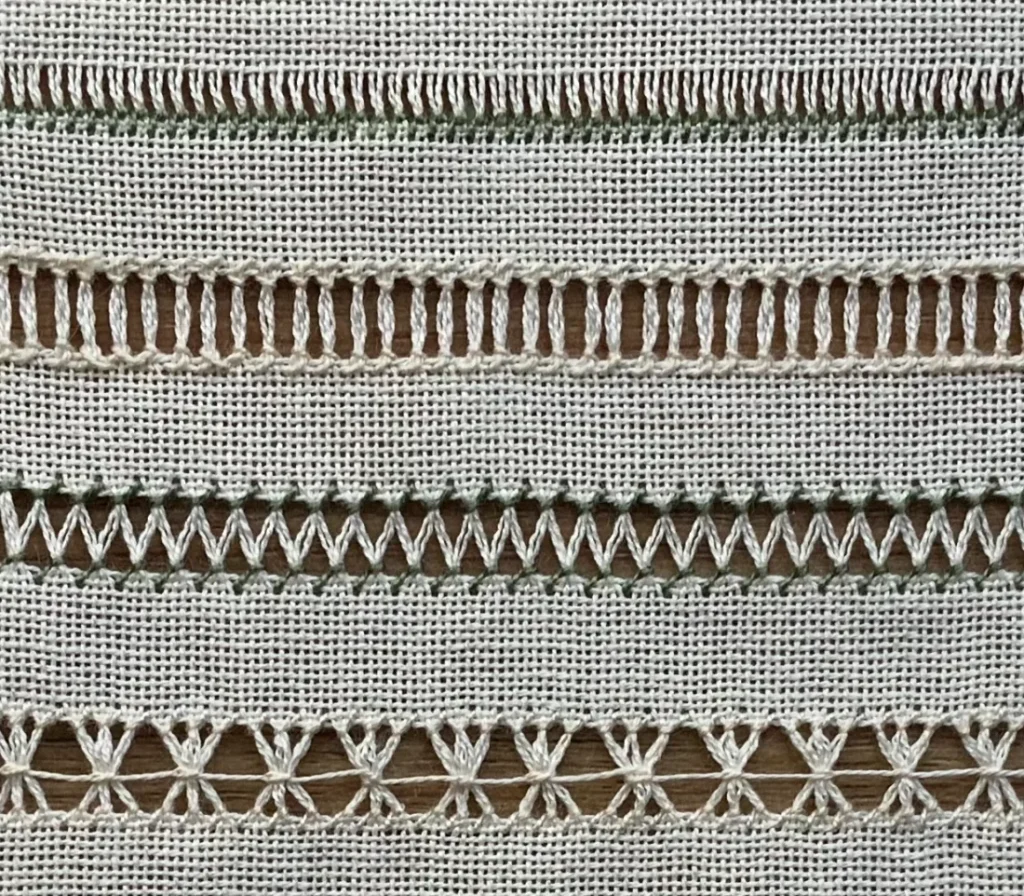
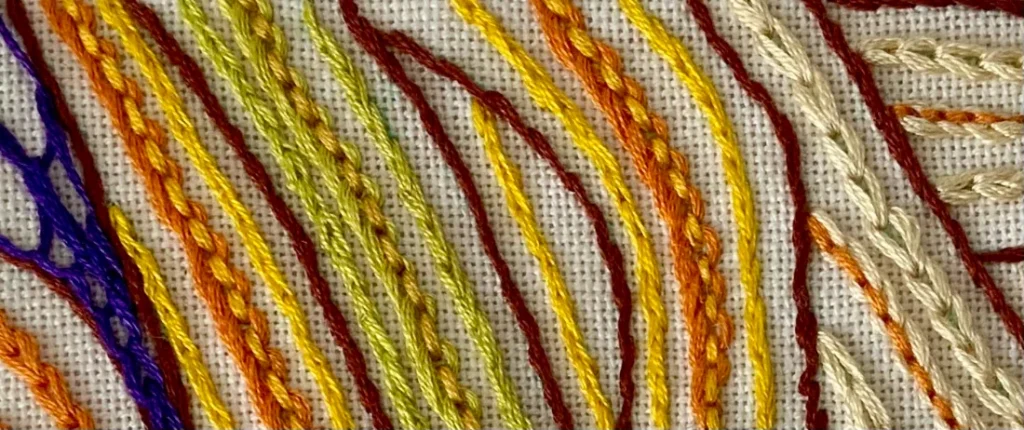
Studying Hand Embroidery
I opted for an accredited course as I knew it would motivate me if I was working within a time frame and would gain a certificate on completion. After I read the course information for Skill Stage 2 I was certain it was going to push me to the next level, and was ideal for my situation. As I live remotely it gave me to opportunity to work from the comfort of my own home and to go at my own pace, fitting it in around work and family. I didn’t want to take on too big a challenge at this stage as I still felt I had much to learn in hand embroidery, therefore Skill Stage 2 was definitely the right level to begin with.
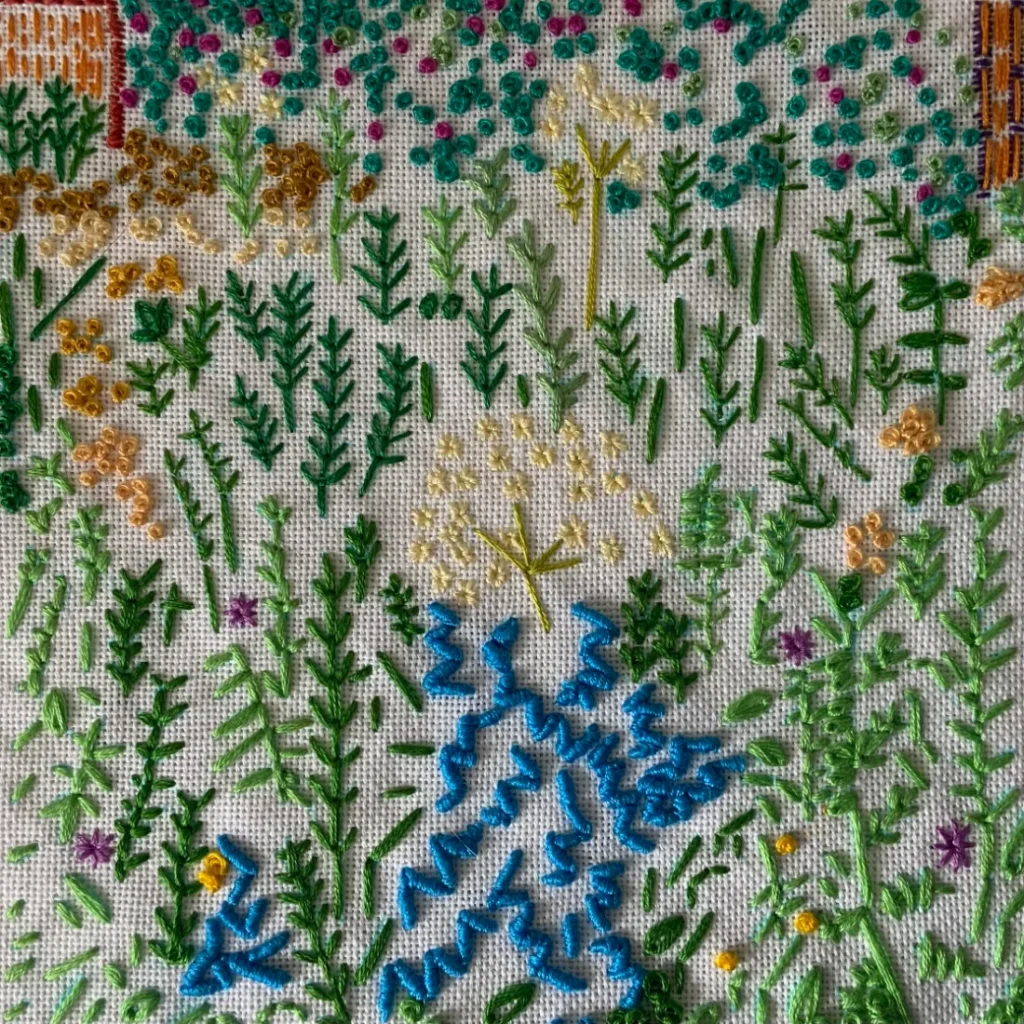
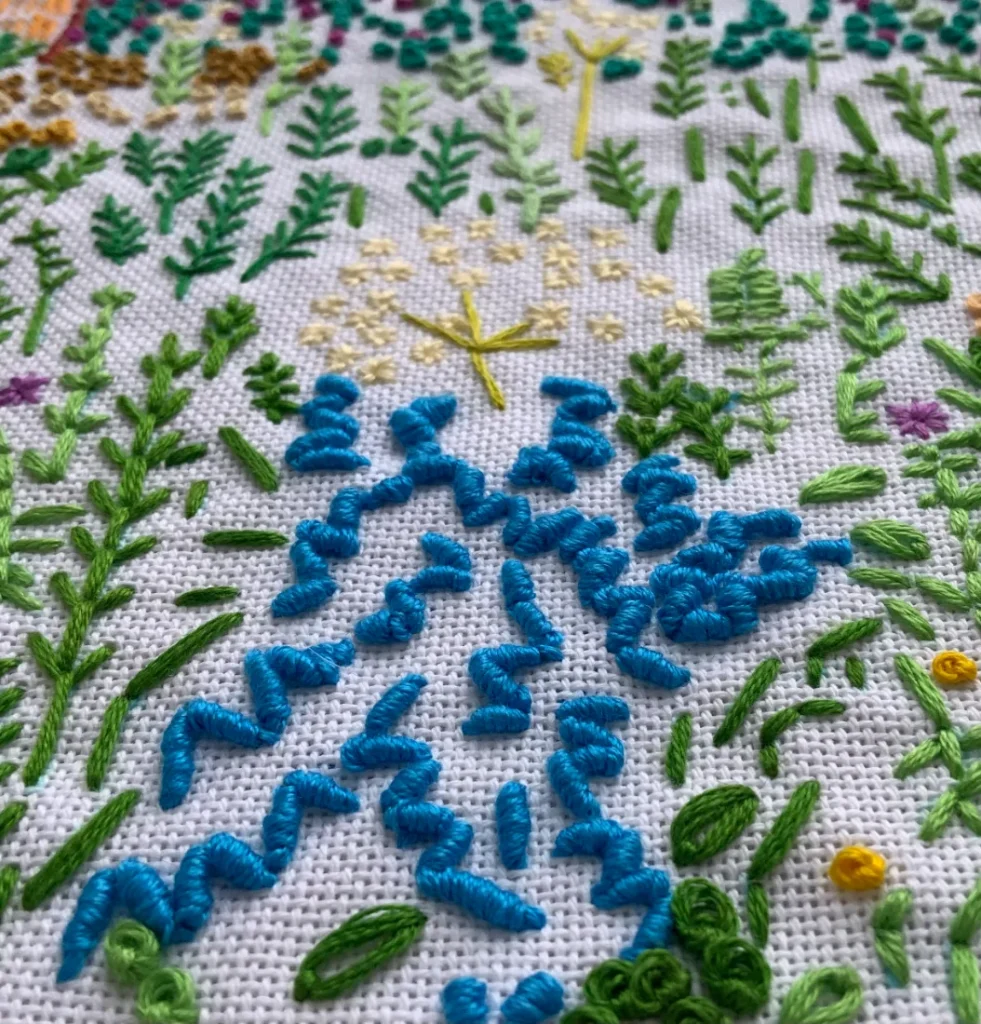
Learning New Types and Techniques of Embroidery
When I became interested in hand embroidery I did some research into contemporary embroidery art. It was fascinating to see how the boundaries of this medium are being pushed and I no longer perceive it as ‘old fashioned’. The course has allowed me to be just as expressive and personal through this medium as any other. I learned new types and techniques of embroidery which I’d never even heard of, which will definitely inform future pieces of my work. Mostly though it has helped me develop a regular practice of work at home and how to be disciplined with my time.
As there is a thriving arts and crafts community where I live, I’d love to become a part of it. Completing this course has given me the confidence to create some unique work of my own. I hope to develop these and exhibit them alongside other textile artists.
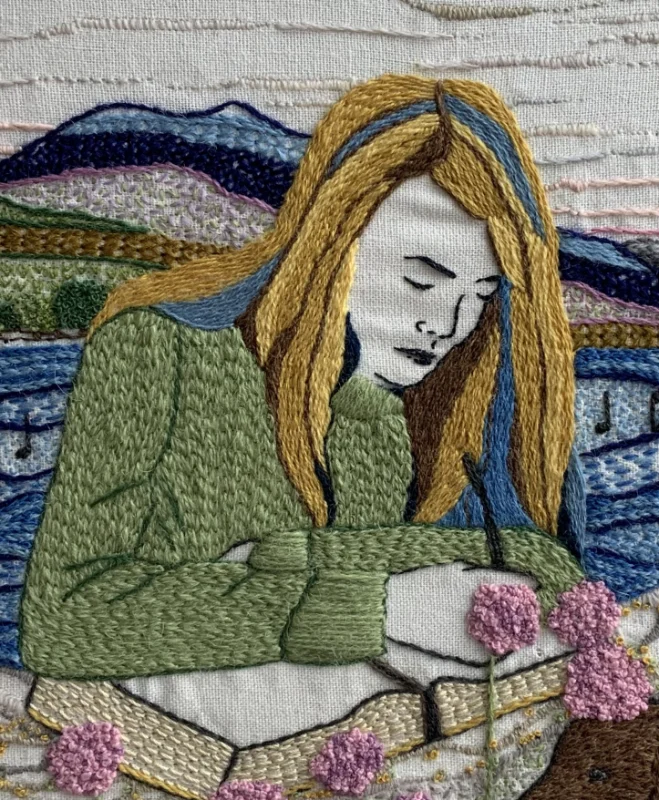
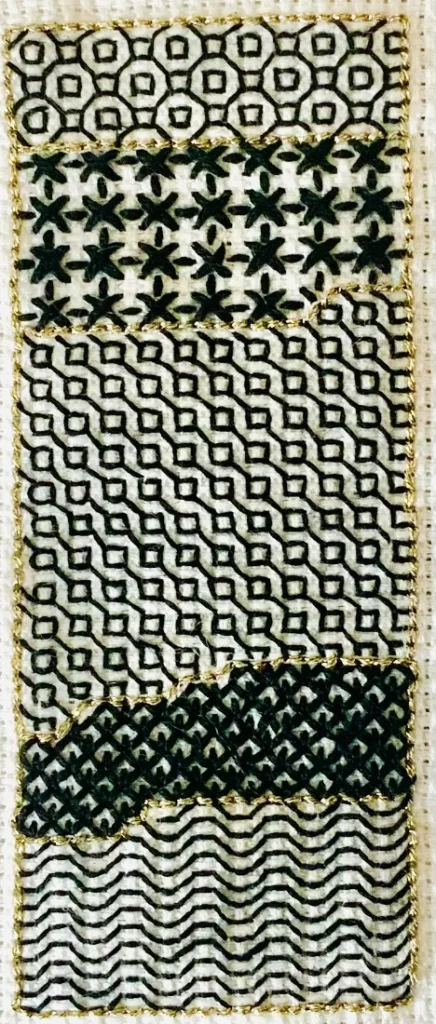
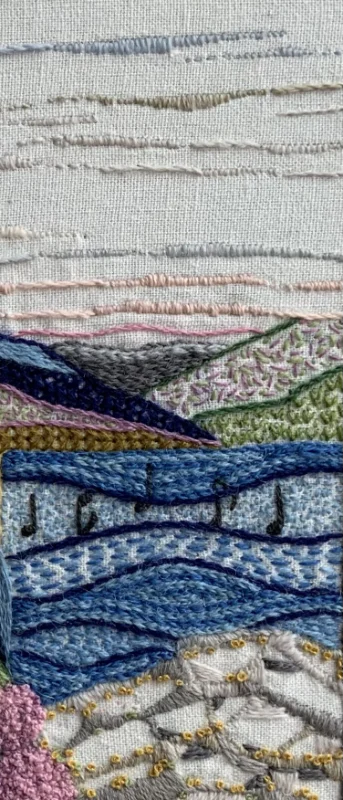
I would definitely recommend this course to anyone looking to enhance their existing skills and to learn new ones. The tutor support is very accessible and invaluable especially as you are working from home. There is a Facebook group support page, and tutor led sessions for advice and inspiration from others on the same journey as you. The course is well structured with straightforward guidelines for each module and some helpful videos.
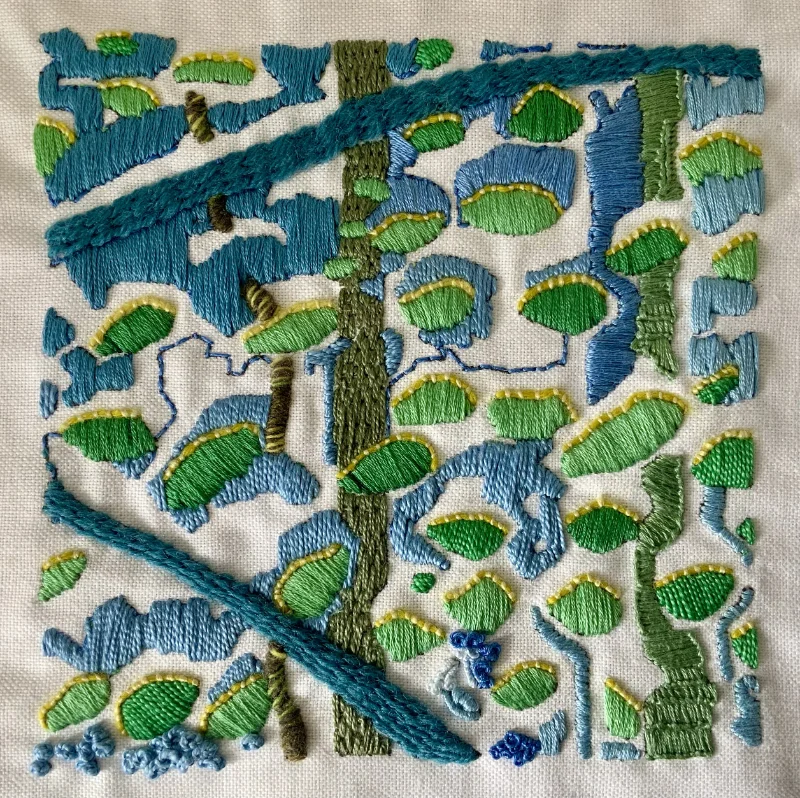
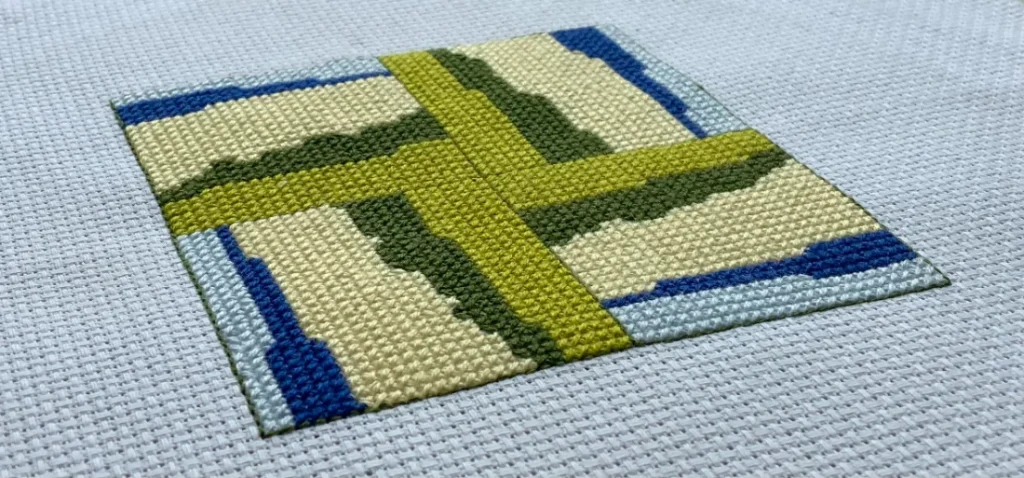
Advice to New Students
My advice to anyone who decides to undertake the course would be to keep your focus on the learning process. Don’t focus too much on the end result. I had to keep reminding myself of this when a piece of work wasn’t turning out the way I envisaged it. When things became challenging and I needed to stay on track I would reach out to my tutor for support. This was essential if I was going to complete the coursework. Most importantly though is to enjoy the process. Experiment; allow yourself to make mistakes, and don’t be afraid to go with your instincts during the design and stitch process. Sometimes deviating from the plan produced better results!

